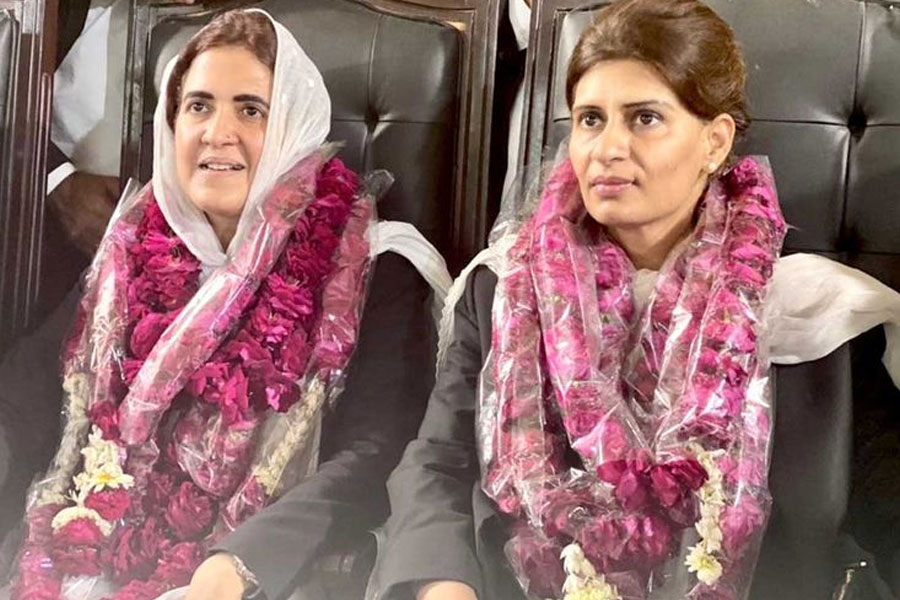In a historic first, Sabahat Rizvi has been elected as the first woman Secretary of the Lahore High Court Bar Association (LHCBA) in 130 years.
Rizvi bagged 4310 votes while her two other rival candidates Mian Irfan and Qadir Baksh Chahal won 3745 and 2627 votes respectively.
On the other hand, Rabbiya Bajwa was elected as Vice President LHCBA. She bagged 3590 votes in total. Senior lawyers celebrated Sabahat Rizvi’s win by placing her high on their shoulders.
Reportedly, Rizvi was the candidate of Asma Jahagnir group aka the “Independent group”. Sabahat Rizvi joined the bar in 2002 and worked in different aspects including civil, corporate, and family law.
Lawyers, particularly the females are hoping that Rizvi’s win will make High Court Bar more gender inclusive.
Dr. Durroshum Khan is Baluchistan’s First Female Chairperson for Local Govt. Elections
Need of More Women in Law Like Sabahat Rizvi in Pakistan
In countries like Pakistan, women face various challenges and obstacles in their lives, including limited access to education and job opportunities, societal pressures and expectations, and discrimination based on gender.
These barriers are especially prominent in the field of law, where women are underrepresented and face significant challenges in their pursuit of legal careers.
However, the importance and need for women in law in countries like Pakistan cannot be overstated. Women like Sabahat Rizvi bring unique perspectives and experiences to the legal profession, and their presence can lead to more just and equitable outcomes in legal cases.
Moreover, having women in positions of power and authority within the legal system can help to break down gender stereotypes and encourage the participation of more women in the field.
One of the most significant barriers that women in Pakistan face in pursuing legal careers is a lack of access to education.
According to a report by the United Nations Development Programme, only 13% of women in Pakistan have completed secondary education, and just 2% have completed tertiary education.
Without access to education, women are unable to gain the skills and knowledge necessary to pursue careers in law.
Even for those women who do have access to education, there are still many barriers to entering the legal profession. One of the main obstacles is the prevalence of gender stereotypes and discrimination.
Many people in Pakistan hold the belief that women are not suited for careers in law or other male-dominated fields. This can lead to women being passed over for job opportunities or facing discrimination in the workplace.
Despite these challenges, there are many women in Pakistan who are working to break down these barriers and make significant contributions to the legal profession.
Another such woman is Asma Jahangir, a renowned human rights lawyer and activist who spent her career fighting for the rights of women, minorities, and other marginalized groups. Jahangir was a powerful advocate for gender equality in Pakistan and was known for her unwavering commitment to justice.
There are also many organizations and initiatives in Pakistan that are working to promote gender equality in the legal profession. For example, the Women in Law Initiative (WIL) is a group of female lawyers who are working to create a supportive community for women in the legal profession and to promote gender equality in the legal system.
The organization provides mentoring and networking opportunities for women in law and advocates for policies that support gender equality.
What are your thoughts? Share them with us in the comments below.
Stay tuned to WOW360.
Dr. Sarah Qureshi – Brains Behind Pakistan’s First Commercial Flight Engine & Plane Company
